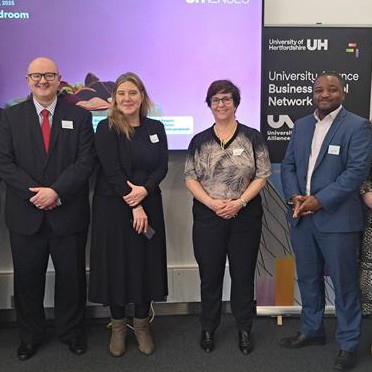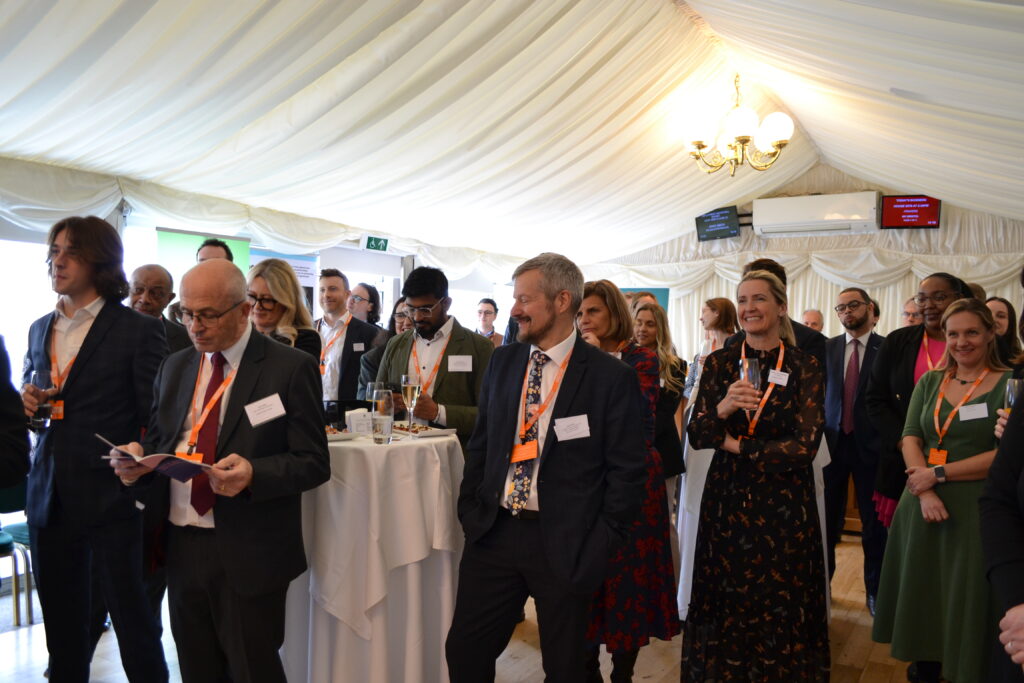This article first appeared in Research Professional News on the 21/06/2020
The taskforce on research sustainability must involve professional and technical universities, says UA Chair Debra Humphris
At University Alliance, we welcomed the creation of the Ministerial University Research and Knowledge Exchange Sustainability Taskforce. As significant providers of applied research, drivers of innovation and leaders in knowledge exchange, we saw it as an important step in ensuring that the diverse UK university research base could continue to contribute economically, socially and culturally to the Covid-19 recovery.
Yet the absence of representation from professional and technical universities within the taskforce membership is notable, and we hope the group seeks to involve a more diverse range of institutions. If not, it risks missing a vital perspective.
Supporting business
With a deep heritage as anchor institutions, our universities are well connected within their communities and plugged in to the civic infrastructure in their regions. As the coronavirus pandemic took hold, University Alliance members used these links to respond quickly to help businesses and industries adapt and survive through the crisis. In the longer term, we aim to help change the shape of the incoming recession.
This work has included helping businesses access different sources of funding, coaching them in transforming their business models, and delivering digital skills training to help build their resilience and keep them moving.
University Alliance members are also supporting businesses in navigating the post-lockdown period and preparing for recovery. The breadth and depth of the economic crisis is yet to be realised in full, but our universities are well placed to address regional economic needs. They are already core members in local hubs and recovery groups, and they will be a central vehicle for driving local and national economic recovery efforts. In many cases, they are already the driving force behind regeneration and redevelopment programmes.
We now know that this role is supported by the public, with more than 71 per cent of those recently polled saying that universities were vital to the nation’s social and economic recovery. Indeed, the same poll found particularly strong support among the public for the role that universities like ours play in driving business and growth, with 75 per cent of respondents saying universities were ‘very or quite’ important to future innovation and economic growth.
Throughout this crisis, University Alliance members have demonstrated their deep commitment to serving their communities. With a clear mission to dedicate people, capacity and knowledge to effecting change, we stand ready to offer whatever support and service our communities, students and government may need during these challenging times.
Government action
The government could take a number of actions to maximise the role that anchor universities can play in realising a sustainable social, cultural and economic recovery for the nation.
First, it could outline and consult on plans for the Shared Prosperity Fund, which should be integrated with the Innovate UK agenda. Many research and innovation programmes that support local economic development are part-funded through European Union Structural and Investment Funds. Further delays in outlining plans for replacing this funding will hinder anchor institutions like ours in understanding how they can support economic growth and address skills deficits at a time when their own resources are likely to be depleted.
Then it could leverage the existing relationships that universities have with business communities to tackle unemployment. Due to the looming economic crisis, many firms are cancelling apprenticeships and graduate roles—and as this affects industry supply chains, unemployment is due to rise further. Alliance universities are closely connected and have the knowledge exchange maturity to bring together students, graduates, researchers, industry experts and businesses to address challenges facing industry.
Paid-for support for placements or paid internships with small and medium-sized businesses would aid individuals, business and the economy, and a proven model could be tailored to fit the skills needs and growth industries of each region, as per the industrial strategy.
Finally, the government could also work towards a holistic type of recovery. While the specific actions suggested above would aid our role in the economic recovery, as the vice-chancellor of a university that—like many other University Alliance members—plays a fundamental role in cultural programming in its region, I am particularly concerned about the damage the crisis is doing to tourism, leisure, hospitality, retail, arts and culture. The potential loss of related research and innovation activity, which already receives relatively low levels of funding, could make the recovery period for these industries even more protracted and damaging.
Next task for the taskforce
The potential loss of tuition fee income and the ongoing impact of Covid-19 on businesses and charities will inevitably have an effect on the research and innovation capacity of University Alliance members. While we are some way off ‘cliff-edge’ decision time on research and innovation activity, immediate support from the taskforce is needed.
Discussions cannot wait until the autumn. Processes must be in place for when the impact on student numbers becomes clear. Universities must have the option to draw down support quickly to protect the research base.
When we fully understand the impact of the crisis across higher education, it will be vital that any necessary interventions to protect research and knowledge exchange are swift and targeted. A one-size-fits-all approach is unlikely to work (another reason why it’s important for the taskforce to hear from a range of institutions), but we’re glad that these conversations are happening now for when the need arises.
Any medium and long-term recovery will require innovative solutions that can only come through consulting a wide range of voices. One way of achieving this could be to have a wider group of institutional representatives that receive all the documentation but rotate their attendance. Now is the time for the taskforce to get creative in leveraging the breadth of innovation available to it.
This article first appeared in Research Professional News on the 21/06/2020




